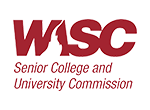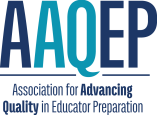
Bachelor of Arts
in Early Childhood
Development
with an Inspired Teaching and Learning
Preliminary Multiple Subject Teaching Credential (California)
4-week
COURSES
Start sooner and finish faster with our innovative course design.
Year-round
enrollment
Our admissions team reviews applications year-round.
200K+ Alumni Worldwide
Become a member of NU’s global community.
Program Overview
The Bachelor of Arts in Early Childhood Development with a California Inspired Teaching in Learning Preliminary Multiple Subject Teaching Credential provides a broad, rigorous education that prepares you for a career as a teacher at early elementary grades. The bachelor’s program introduces you to essential knowledge, strategies, techniques and connections across the disciplines as applied to young children. As a child development major, you’ll focus on an enriched and thought-provoking curriculum incorporating content across subject areas, specific educational methodology courses and preparation for professional work as multiple subject teachers in elementary grades.
The ECE credential is designed for teacher candidates who will be dedicated to inspiring K6 learners by ensuring for them: social-emotional thriving, meaningful academic achievement and an equitable and inclusive learning community. All candidates must demonstrate subject-matter competency through a state-approved examination (CSET).
Please note: To avoid interruption to program progress and/or financial aid arrangements, students need to satisfy /pass the Basic Skills Requirement (e.g., CBEST) and Subject Matter Competency Requirements (e.g., CSET) PRIOR to starting the multiple credential area method courses.

The Western Association of Schools and Colleges (WASC) accredits public and private schools, colleges, and universities in the U.S.

Course Details
Course Listing
Preparation for Major
- 4 courses; 18 quarter units
Course Name
Overview of major and theoretical frameworks and perspectives. Focus on gender and cultural impact on biological, physical, cognitive, social, moral, emotional and behavioral aspects of development for effective educational practices.
Focus on the influence of family, school and community on development and education of the young child. Special emphasis on the role of nutrition, positive home and school environments and community resources.
Focus on cultural pluralism and its impact on development and education in regards to teaching and learning strategies. Emphasis on self-examination, reflection, and integration of current processes involved in interactions and relationships in society.
Focus on the eight components for coordinated health for young children in out-of-home care. Health, physical education, health and nutrition services, health promotion for the staff, counseling and psychological services, a safe healthy environment, and family involvement, and community resources and personnel will be addressed. Attention will be directed towards children with special needs and challenging behaviors as well as legal and ethical issues in the field of early childhood.
Requirements for the Major
- 9 courses; 40.5 quarter units
Early Childhood Education Core Requirements
Course Name
Focus on local, state and federal statutes and regulations in early education settings. Emphasis on ethical codes of conduct, including analysis of legal and ethical dilemmas and practice.
Prerequisite: ECE 201; ECE 210; HED 220 and ECE 211
Inquiry into the nature and tasks of early cognition including social, cultural and biological foundations. Attention paid to current research implications for learning theory, individual differences and classroom instruction.
Prerequisite: ECE 330
Focus on acquisition and developmental aspects of language related to emergent literacy skills. Emphasis on current research regarding language experiences that contributes to literacy acquisitions, including assessment and instruction.
Prerequisite: ECE 330
Focus on essential elements of curriculum design including writing of goals, learning outcomes, developmentally appropriate activities, assessment measures and integration of the arts. Alignment with national and state standards stressed.
Prerequisite: ECE 330
Focus on identification, design and delivery of developmentally age appropriate experiences that encourage active math, science and technology inquiry. Inquiry related to emerging notions of mathematical and scientific processes is basis for activities along with the inclusion of technology as a strategy.
Prerequisite: ECE 330
Focus on play as the primary learning modality for young children. Theoretical basis for play as a means of teaching, role in learning and as a means of assessment emphasized.
Prerequisite: ECE 330
Focus on acquiring and enhancing skills in the selection, administration, scoring, interpretation, reporting of screening assessment instruments. Emphasis on designing and implementing curricula based on assessment results.
Prerequisite: ECE 330
Exploration of variations in child development and identification of specific disabilities in young children. Inclusive early childhood programs, specific strategies for adaptation and accommodation of the core curriculum to meet the social, emotional, and academic needs of children who are at-risk or have special needs are examined.
Prerequisite: ECE 330
Focus on observation, identification, description, and assessment of challenging behaviors. Designing and implementing effective teaching and learning strategies to successfully guide these behaviors within a social and cultural context.
Degree and Course Requirements
To receive a Bachelor of Arts in Early Childhood Development with a California Inspired Teaching and Learning Preliminary Multiple Subject Teaching Credential, candidates must complete at least 180 quarter units as articulated below, 45 of which must be completed in residence at National University, 76.5 of which must be completed at the upper-division level, and a minimum 69 units of the University General Education requirements. In the absence of transfer credit, additional general electives may be necessary to satisfy total units for the degree. The following courses are specific degree requirements. Candidates should refer to the section on undergraduate admission procedures for specific information on admission and evaluation.
Program Learning Outcomes
- Identify essential concepts, inquiry tools, structure of content areas and resources for early childhood education.
- Develop oral, written, and technological skills for communicating with families and very young children.
- Create environments that are healthy, respectful, supportive, and challenging for all children.
- Use systematic observations, documentation, and other assessment strategies in partnership with families and professionals to positively influence children’s development and learning.
Admissions
Enrolling in a university is a big decision. That’s why our dedicated admissions team is here to guide you through the admissions process and help you find the right program for you and your career goals.
To that end, we’ve simplified and streamlined our application process, so you can get enrolled in your program right away. Because we accept and review applications year round, you can begin class as soon as next month, depending on your program and location of choice.
Learn more about undergraduate, graduate, military, and international student admissions, plus admissions information for transfer students. You can also learn more about our tuition rates and financial aid opportunities.
To speak with our admissions team, call (855) 355-6288 or request information and an advisor will contact you shortly. If you’re ready to apply, simply start your application today.

4 WEEK COURSES
Why Choose National University
- Four-Week Courses
- 75+ Degree Programs
- Online or On-Site
- Year-Round Enrollment
- Military Friendly
We’re proud to be a veteran-founded, San Diego-based nonprofit. Since 1971, our mission has been to provide accessible, achievable higher education to adult learners. Today, we educate students from across the U.S. and around the globe, with over 200,000 alumni worldwide.

“National University has impacted my career. You can immediately apply what you learn in class to your business.”
-Francisco R., Class of 2016

FLEXIBLE SCHEDULE

Year of You Scholarship
Do you qualify for a needs-based scholarship? Learn more about the NU Year of You Scholarship and other scholarship opportunities to unlock the door to your dreams!
Program Disclosure
Successful completion and attainment of National University degrees do not lead to automatic or immediate licensure, employment, or certification in any state/country. The University cannot guarantee that any professional organization or business will accept a graduate’s application to sit for any certification, licensure, or related exam for the purpose of professional certification.
Program availability varies by state. Many disciplines, professions, and jobs require disclosure of an individual’s criminal history, and a variety of states require background checks to apply to, or be eligible for, certain certificates, registrations, and licenses. Existence of a criminal history may also subject an individual to denial of an initial application for a certificate, registration, or license and/or result in the revocation or suspension of an existing certificate, registration, or license. Requirements can vary by state, occupation, and/or licensing authority.
NU graduates will be subject to additional requirements on a program, certification/licensure, employment, and state-by-state basis that can include one or more of the following items: internships, practicum experience, additional coursework, exams, tests, drug testing, earning an additional degree, and/or other training/education requirements.
All prospective students are advised to review employment, certification, and/or licensure requirements in their state, and to contact the certification/licensing body of the state and/or country where they intend to obtain certification/licensure to verify that these courses/programs qualify in that state/country, prior to enrolling. Prospective students are also advised to regularly review the state’s/country’s policies and procedures relating to certification/licensure, as those policies are subject to change.
National University degrees do not guarantee employment or salary of any kind. Prospective students are strongly encouraged to review desired job positions to review degrees, education, and/or training required to apply for desired positions. Prospective students should monitor these positions as requirements, salary, and other relevant factors can change over time.